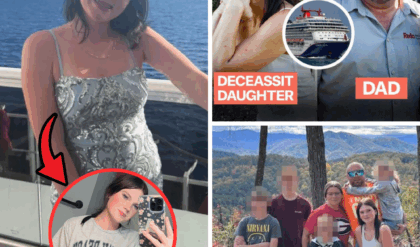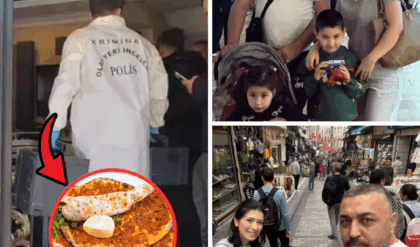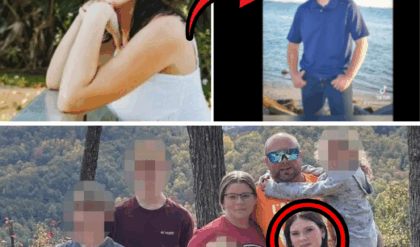In the rain-lashed enclaves of Long Island’s Oyster Bay, where manicured hedges conceal the fractures of privilege, Netflix has unleashed its latest predator: The Beast in Me. Dropping all eight episodes on November 13, 2025, this psychological thriller has clawed its way to the top of the streamer’s charts, amassing over 45 million viewing hours in its first weekend and sparking a frenzy of late-night binges and sleep-deprived X rants. Created by Gabe Rotter—whose credits include scripting for The X-Files—and helmed by showrunner Howard Gordon (Homeland, 24), the series is a masterclass in slow-simmering dread, blending the intimate cat-and-mouse of Gone Girl with the grief-fueled paranoia of Sharp Objects. But it’s the reunion of Claire Danes and Gordon that feels like fate’s cruel joke: the Emmy darling who once unraveled as CIA operative Carrie Mathison now plays a woman whose unraveling is far more personal, far more primal. Viewers aren’t just watching; they’re ensnared. “It hijacks your brain and won’t let go,” one X user confessed after a 24-hour marathon. “I finished at 3 a.m., stared at the ceiling, and questioned every neighbor I’ve ever had.”
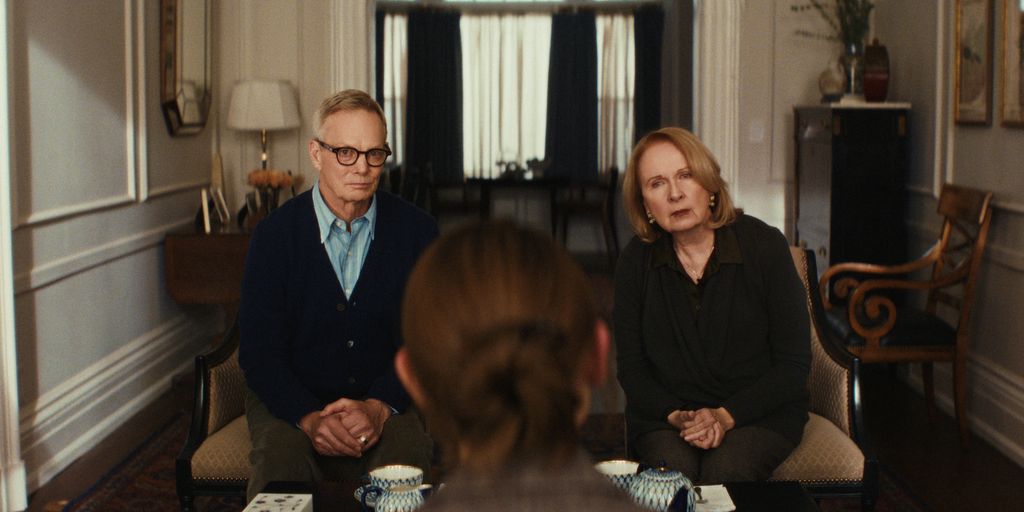
At its core, The Beast in Me is a tale of two monsters in human skin, probing the thin line between hunter and hunted. Claire Danes stars as Aggie Wiggs, a once-celebrated author whose life imploded four years ago when her young son perished in a freak car accident. The tragedy didn’t just claim her child; it devoured her marriage to her wife, her literary voice, and her will to live. Now holed up in a sprawling, echoey Oyster Bay mansion—its walls lined with dusty manuscripts and dog-eared true-crime tomes—Aggie drifts through days of therapy sessions, yappy white poodle companionship, and futile attempts at her next book: a mismatched profile on the unlikely friendship between Ruth Bader Ginsburg and Antonin Scalia. She’s a ghost in her own life, her signature Danes quiver— that chin-trembling tell of bottled fury—now a permanent fixture, as if grief has rewired her face into a perpetual storm cloud.
Enter Nile Jarvis (Matthew Rhys), the silver-tongued real estate scion who rolls into the neighboring estate like a wolf in bespoke tailoring. At 48, Nile is the heir to Jarvis Developments, a cutthroat empire that bulldozes historic districts for gleaming condos, leaving trails of displaced families and simmering protests in its wake. But it’s not his boardroom brutality that chills; it’s the specter of his past. Six years prior, Nile’s first wife, Madison—a luminous socialite with a penchant for vintage Chanel—vanished without a trace during a stormy weekend at their Hamptons retreat. He was the last to see her alive, his alibi a flimsy web of “business calls” and “solo hikes.” The tabloids dubbed him the “Black Widow Bachelor,” and though no charges stuck, the whispers persist: Did he push her from the cliffs? Stage a yacht accident? Or is Madison sipping mai tais in Aruba, plotting her revenge? Nile’s arrival in Aggie’s quiet cul-de-sac isn’t coincidence; it’s combustion. Over a tense lunch at the local yacht club—where sailboats bob like unspoken accusations—he quizzes her stalled project, his Welsh lilt dripping with faux empathy. “Scalia and Ginsburg? Opposites attract, don’t they? Like us.” Aggie, repulsed yet riveted, sees her muse: a man whose darkness might mirror her own void.
What unfolds is a duet of deception, a psychological tango that escalates from awkward neighborly barbecues to midnight stakeouts and hacked security cams. Aggie, fueled by a cocktail of Ambien and obsession, begins shadowing Nile—poring over court transcripts in her basement “war room,” charming his inner circle for crumbs. She befriends his poised second wife, Nina (Brittany Snow, channeling icy poise with an undercurrent of fracture), who confides in hushed garden chats about the “ghosts” in their marriage. Nina’s not just arm candy; she’s a former prosecutor with her own buried scars, her loyalty to Nile tested by flashes of doubt. Meanwhile, Aggie’s ex-wife, the steely therapist Laura (Natalie Morales), warns her against the fixation: “You’re not investigating him, Aggie. You’re romancing the void.” But romance it becomes—or something darker. Nile, sensing her scrutiny, counters with calculated vulnerability: late-night scotch sessions on shared fences, where he spins tales of Madison’s “wild streak” and his own “beast” of ambition. Rhys plays him like a Stradivarius—charming one moment, predatory the next, his eyes flickering with the glee of a man who thrives on being seen.
The series’ eight episodes, each clocking in around 50 minutes, build like a tightening noose. Early chapters luxuriate in setup: sweeping drone shots of Oyster Bay’s fog-shrouded estates, a haunting score by Hereditary composer Colin Stetson that pulses like a migraine. Aggie’s descent is visceral—Danes nails the jittery mania, her breaths hitching like faulty gears, her wardrobe of rumpled cashmere a far cry from Homeland‘s tactical chic. Flashbacks to the accident, rendered in stark, rain-slicked vignettes, reveal not just loss but guilt: Was Aggie texting at the wheel? The show doesn’t shy from her flaws; she’s no saintly sleuth but a woman weaponizing her pain. As the plot coils, subplots snake in: Nile’s domineering father, Martin (Jonathan Banks, all gravelly menace and Breaking Bad echoes), who built the empire on shady deals with cartel whispers. Protests erupt over Jarvis Yards, a waterfront mega-project spearheaded by Nile, led by ambitious councilwoman Olivia Benitez (Aleyse Shannon), whose mayoral bid could topple him—or ally with Aggie. Then there’s Abbott (David Lyons), Nile’s slick lieutenant, whose extramarital affair dangles like blackmail bait, and a parade of cameos: Tim Guinee as a bumbling PI, Deirdre O’Connell as Aggie’s no-nonsense editor, Will Brill as a conspiracy-peddling podcaster.
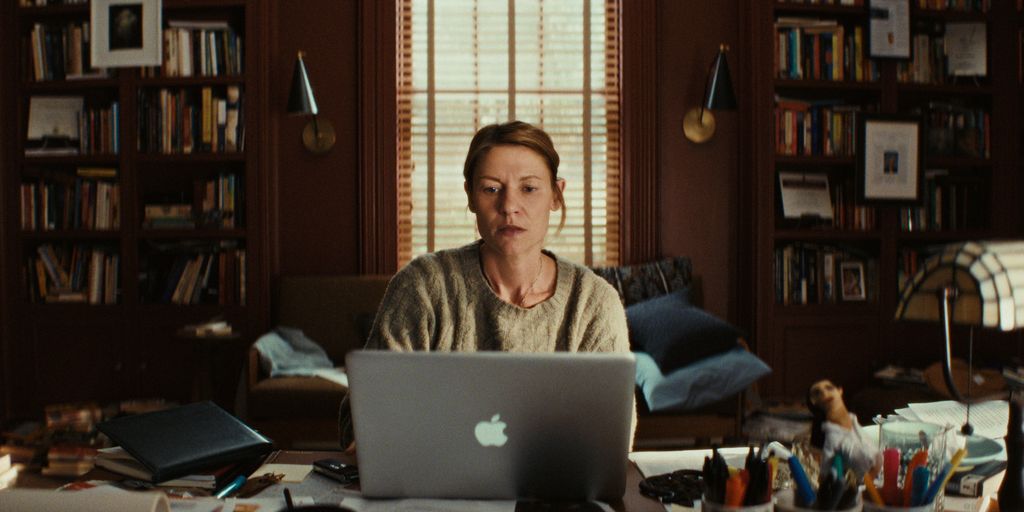
By mid-season, the mind games metastasize. Aggie breaks into Nile’s guest house, unearthing a locked drawer of Madison’s love letters—scrawled with pleas like “The beast is winning.” Nile retaliates with anonymous tips to Aggie’s publisher, painting her as unstable. Their confrontations crackle: a greenhouse showdown where accusations fly like shattered glass, or a charity gala where they waltz under chandeliers, whispers laced with threats. “You’ve got bloodlust in you,” Nile purrs in one pivotal scene, his hand lingering too long on her waist. “I can smell it.” The chemistry between Danes and Rhys is electric, a push-pull of intellect and instinct that feels less like scripted sparring and more like two predators circling the same kill. Danes, 46 and radiating that post-Fleishman Is in Trouble glow, delivers what critics are calling “award-level ferocity”—her Aggie a vortex of vulnerability and venom. Rhys, 51, counters with virtuosic restraint; his Nile isn’t cartoon evil but a chameleon, his charm a scalpel dissecting her defenses.
Production whispers add layers to the beast’s birth. Development kicked off in 2023, with Gordon circling Danes after her Homeland triumph—he’d always wanted her for something “raw, unsparing.” Rotter’s script, inspired by real estate scandals like the Epstein web, drew from Johnny Cash’s brooding ballad of the same name, threading lyrics like “God help the beast in me” into Aggie’s therapy mantras. Filming wrapped in New Jersey’s misty suburbs last fall, with Antonio Campos (The Devil All the Time) directing the tautest episodes, infusing them with Nightcrawler-esque voyeurism. Executive producers Jodie Foster and Conan O’Brien lent prestige—Foster’s imprimatur ensuring psychological depth, O’Brien’s Conaco touch adding wry undercurrents. The ensemble rounded out with heavy hitters: Hettienne Park as a suspicious FBI agent, Kate Burton as Nile’s frosty society aunt, Bill Irwin as a eccentric groundskeeper with dirt on the Jarvis clan. Budgeted at $7 million per episode, the series splurges on atmospheric indulgences—thunder-rumbled sound design, period flashbacks to Madison’s vanishing with ’90s electronica underscoring the unease.
Critics have pounced, with Rotten Tomatoes at 83% fresh, the consensus hailing it as “a cut above the murder-mystery pack, crackling with tension thanks to Danes and Rhys’ superb turns.” The Guardian awarded five stars: “This taut two-hander will surely snag awards—you cannot look away.” Slate praised the leads for elevating “standard-issue thrills into nuclear charisma,” while The Times called it “a classic executed with such panache, you’ll feel mid-nervous breakdown.” Detractors nitpick the familiarity—Hollywood Reporter dubbed it “prestige monotony” for leaning on Danes’ tear ducts—but even they concede the duo’s alchemy. French outlet Le Monde noted Danes’ “unforgettable” return, her Angela Chase innocence twisted into something feral.
Fans? They’re feral too. X erupted post-premiere: “Fentanyl levels of addictive—binge in 24 hours or bust,” one user marathoned, while another warned, “Prepare your nerves; it rewires your brain.” Hashtags like #BeastInMe and #AggieVsNile trended globally, with memes of Danes’ quiver face captioned “When your neighbor’s hot but might be a serial killer.” Binge confessions dominate: “Episode 6 twist had me screaming—Claire and Matthew are gods.” A vocal minority gripes—”Woke drivel with a menopausal lesbian lead”—but the chorus drowns them: “Superb, intelligent storytelling on inner demons. Karma’s a motherfucker.” Viewership skews female 35-54, per Netflix metrics, spiking therapy app downloads and true-crime podcast listens. One Redditor summed it: “It’s not just a thriller; it’s grief porn with a side of schadenfreude.”
The finale, “Reckoning,” detonates like a gut punch—flashbacks to Madison’s final days reveal FBI probes into Nile’s cartel-tainted deals, a mole in his circle, and a betrayal that flips the predator-prey script. Without spoiling, it lands on a note of uneasy symbiosis: beasts don’t die; they evolve. As Aggie types her manuscript’s final line—”The beast in me is you”—the screen fades on their shared horizon, rain blurring the line between ally and adversary. It’s a closer that begs sequels, though Rotter teases it’s self-contained: “Some cages don’t need doors.”
In Netflix’s thriller-saturated fall—flanked by Frankenstein reboots and holiday slasher romps—The Beast in Me stands out for its intimacy, a whisper-scream on isolation in the age of Google-stalked secrets. It’s a reminder that the scariest beasts aren’t in the shadows; they’re the ones we invite for dinner. Danes and Rhys don’t just perform; they possess, leaving you haunted by their gaze long after credits roll. Stream at your peril—because once the beast stirs, it doesn’t sleep. And neither will you.

